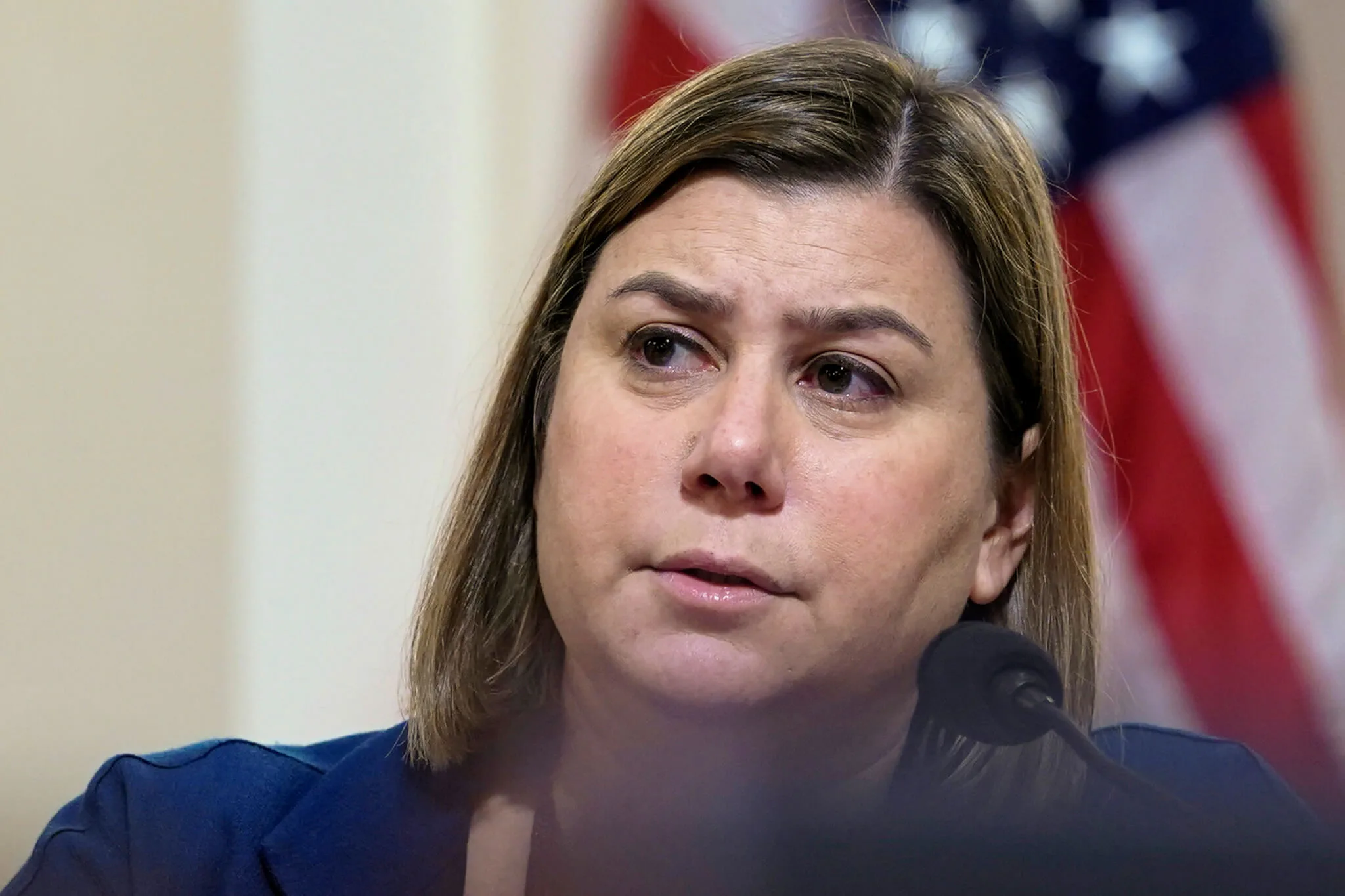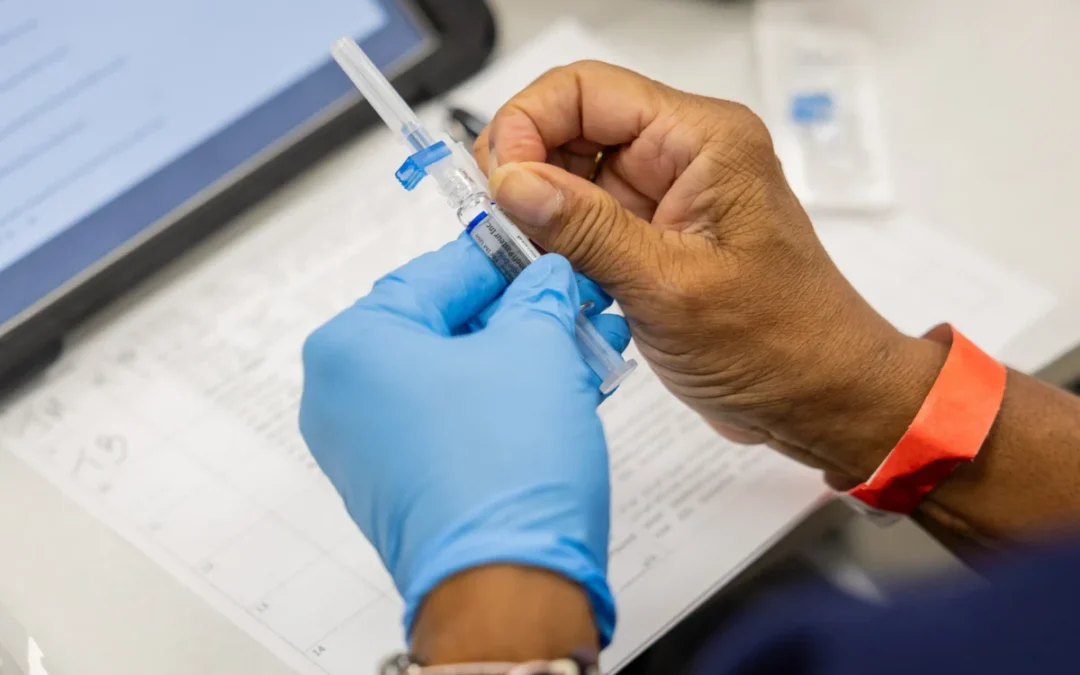
FILE - House Homeland Security Committee member Rep. Elissa Slotkin, D-Mich., asks a question during a House Homeland Security Committee hearing on "Worldwide Threats to the Homeland" at the Capitol in Washington, Nov. 15, 2022. House Democrats will be forced to replace one of their top House candidates next year in Slotkin, who will run for an open Senate seat in the state. Her exit opens one of the country’s most competitive districts in a year where every seat matters for Democrats, who look to overcome the Republicans’ five seat majority in the U.S. House. (AP Photo/Mariam Zuhaib, File)
Representatives Elissa Slotkin (D-Michigan) and Ruben Gallego (D-Arizona) teamed up this week to introduce the Lower Drug Costs for Families Act, a bill which would hold Big Pharma accountable for price gouging.
The bill would require drug companies to pay a penalty if they raise prices faster than inflation. Thanks to last year’s Inflation Reduction Act, the federal government can limit drug price increases faster than the rate of inflation for drugs purchased and used by people on Medicare.
But Slotkin and Gallego’s bill would expand this to include drugs purchased and used by people with private health insurance. Under the proposal, all penalties paid by companies would go towards preserving the Medicare Trust fund. One estimate suggests it could save the federal government $34 billion over the next 10 years.
“Last summer, we finally passed historic legislation to lower the cost of prescription drugs, but the job isn’t finished and this bill builds on that foundation,” Slotkin, who is running for Senate in 2024, said in a statement. “The Lower Drug Costs for Families Act will expand prescription drug provisions beyond just Medicare enrollees, so working families can benefit from lower costs too. It will keep big pharma in check by penalizing them when they needlessly jack up their prices, so they can no longer gouge Americans who rely on their medications to live.”
Outrage over prescription drug price-gouging is nothing new.
As philanthropic organization Arnold Ventures notes, pharmaceutical companies have “gamed the U.S. patent system and engaged in anti-competitive behaviors to drive up prices” for decades.
A recent report from the Senate Health, Education, Labor, and Pensions Committee also outlined how “pharmaceutical corporations use taxpayer-funded research to develop products to sell back to those same taxpayers for exorbitant profits,” and how “U.S. taxpayers virtually always pay more than people in other countries for treatments that [government] scientists helped invent.”
For example, Prezista, an HIV medication manufactured by Johnson & Johnson, has a list price of $25,000 in the United States. In Germany, the list price for that same medication is $4,000. Prezcobix, another HIV medication manufactured by Johnson & Johnson, has a list price of $29,000 in the U.S. In Japan, the list price is $5,000.
This type of price gouging isn’t exclusive to HIV medication either. For years, the three major insulin makers steadily raised the prices of the life-saving medication—so much so that over a 20-year period, the cost of insulin increased by an astonishing 600%. These price hikes came as the cost of producing insulin remained stable, between $3.69 and $6.16 a vial, according to one 2018 study.
The high costs of drugs have made it difficult for many Americans to afford the medication they need to live—so difficult in fact that 17% of insulin users reported either delaying buying insulin, taking less than needed, or skipping a dose due to cost reasons. This can lead to diabetic ketoacidosis, a life-threatening complication that occurs when the body doesn’t have enough insulin.
While Americans are struggling to afford the medication they need to live, these pharmaceutical companies are raking in money. Pfizer reported revenues of over $100 billion in 2022 alone and Merck’s annual revenue last year was nearly $60 billion.
The Lower Drug Costs for Families Act has been endorsed by Patients for Affordable Drugs Now, the American Federation of State, Communications Workers of America (CWA), the American Federation of Teachers, and more.
Sen. Catherine Cortez Masto (D-Nevada) introduced the Senate version of Slotkin and Gallego’s bill earlier this year.

It’s almost flu season. Should you still get a shot, and will insurance cover it?
Madison Czopek, PolitiFact August 18, 2025 For parents of school-aged children, the fall to-do list can seem ever-growing. Buy school supplies. Fill...

Opinion: Health care is at risk as Grad PLUS loans face the chopping block
The ‘One Big, Beautiful Bill Act’ strips critical funding from medical students and threatens care in rural and underserved communities. We never...

Macomb County households will start losing money this year under Trump’s new spending law. Here’s how much—and who let it happen
Families in Michigan’s 10th Congressional District will shoulder over $500 million in lost funding, while billionaires cash in. In the neighborhoods...

Federal cuts will hit the Flint region hardest. Here’s how much money people there stand to lose—and who tried to stop it
“Everybody will see daily costs go up, like health care, utility bills, and food to help Elon Musk and Jeff Bezos make more money.” Residents in...

‘Big beautiful bill’ will end Medicaid for people in Macomb and Oakland counties this year. Here’s how many will lose it—and who’s responsible
The representative who voted to take away health care from nearly 20,000 Michiganders in his district also plans to run for governor. President...





